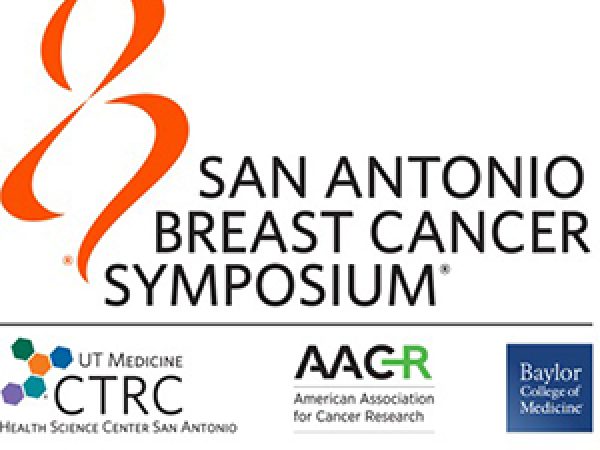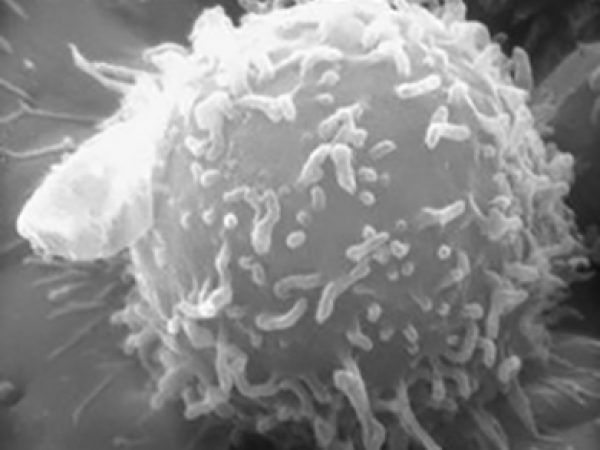2019 in Review: Progress Across Many Areas of Cancer Research
In 2019, research continued to drive progress across the spectrum of cancer care in the form of new and better ways to prevent, detect, diagnose, and treat some of the many diseases we call cancer. Here’s a look at some key developments in drug approvals, precision medicine, disparities research, and immunotherapy.
Among the advances in cancer treatment that occurred during 2019 were the approvals of 10 new therapeutics by the U.S. Food and Drug Administration (FDA) for treating patients with various types of cancer. During this time, the FDA also approved seven previously approved anticancer therapeutics for treating new types of cancer.
All 10 of the new therapeutics approved by the FDA in 2019 target specific molecules involved in cancer and are referred to as molecularly targeted therapeutics. As discussed in a previous post on this blog, early data from two of the trials that led to the August 2019 approvals of entrectinib (Rozlytrek) for treating adults and adolescents age 12 and older whose cancers have an NTRK gene fusion and for treating adults who have metastatic non–small cell lung cancer that tests positive for mutations in the ROS1 gene were presented at the American Association for Cancer Research (AACR) Annual Meeting 2016.
Among the seven previously approved anticancer therapeutics to be approved by the FDA for treating new types of cancer in 2019 were three immunotherapeutics called checkpoint inhibitors. The use of checkpoint inhibitors in the treatment of cancer has expanded extraordinarily rapidly over the past five years. In 2019, there were new approvals for using these immunotherapeutics for an additional three types of cancer, including the first approval for the use of immunotherapy in the treatment of breast cancer. This advance in the treatment of breast cancer was specifically for patients who are diagnosed with a particularly aggressive form of the disease called triple-negative breast cancer, such as Eva Joseph, one of 11 courageous cancer survivors featured in the AACR Cancer Progress Report 2019.
Learn more about Eva’s experience by watching the video below and read more about how research-driven advances in cancer care benefited the other cancer survivors who shared their experiences with cancer in the AACR Cancer Progress Report 2019.
Precision medicine is a focus of several AACR conferences
Rapid advances in technology have facilitated improved understanding of the biology of cancer, allowing researchers to identify several new molecular targets and develop innovative therapeutics and drug delivery strategies. All of this is fueling continuous progress in precision medicine, the tailoring of treatments for cancer patients.
In 2019, the AACR convened a number of conferences and workshops to address several areas of precision medicine. In February, the AACR held a conference on Modernizing Population Sciences in the Digital Age in San Diego. Experts discussed the best use of mobile technology, the best ways to leverage large data sets, and the incorporation of modern technologies in enhancing epidemiological studies of cancer.
In July, the AACR collaborated with the FDA to cosponsor the FDA-AACR Real-world Evidence Workshop in Bethesda, Maryland, to explore the utility of real-world evidence (RWE) in oncology. Real-world data, or data on patients’ medical care collected from a variety of sources, can provide important information about the usage and potential benefits or risks of a medical product. Further, in situations where a traditional clinical trial is not feasible, such as for rare cancers, RWE can provide useful data. At the workshop, members of the FDA discussed progress with the implementation of the Framework released recently for their RWE Program, and highlighted the contributions of large genomic databases, including AACR Project GENIE, in generating RWE.
At the AACR-NCI-EORTC International Conference on Molecular Targets and Cancer Therapeutics held in Boston in October, members of academia, the pharmaceutical industry, federal regulatory agencies, and all other stakeholders in the cancer drug development space met to discuss the latest advances in the field.
The meeting showcased clinical trials of several innovative therapeutics, including tipifarnib, a new HRAS-targeted therapeutic for patients with advanced head and neck cancer; a bispecific HER2/HER3 antibody therapeutic MCLA-128 for patients with metastatic pancreatic cancer; and AG-270, an inhibitor of the enzyme methionine adenosyltransferase 2A for patients with solid tumors that lacked both copies of the gene methylthioadenosine phosphorylase. A series of presentations also highlighted breakthroughs in targeting KRAS, a protein that is altered in many cancers and had proved challenging to target for three decades.
The AACR Annual Meeting 2019 discussed many promising areas of precision medicine; blog posts featuring them can be found here. Register to attend the AACR Annual Meeting 2020 and stay abreast of the latest advances in this space.
AACR conference on disparities attracts largest attendance to date
In 2019, the AACR continued to expand its work on disparities in cancer health. Despite years of significant progress against cancer, not all Americans have shared equally in the benefits. Racial and ethnic minority groups, along with many other underserved communities, bear a disproportionately higher burden of cancer, with higher incidence and poorer survival of many cancer types.
In September, the AACR hosted the 12th AACR Conference on the Science of Cancer Health Disparities in Racial/Ethnic Minorities and the Medically Underserved in San Francisco. It was the AACR’s largest disparities conference in history, with more than 870 attendees. Program offerings reflected the growing scope of disparities research, with engaging sessions on gender and sexual minorities, the U.S./Mexico border communities, children, and adolescents and young adults.

The conference also featured a look at innovative programs that improve access to screening, and new ways to use big data and geographic information systems to assess populations.
“We can no longer afford to ignore cancer health disparities,” said conference Chair Laura Fejerman, PhD, of the University of California, San Francisco. “In an era of precision medicine and precision public health, recognizing differences and similarities between populations and assuring that research is conducted in a way that all groups are represented, is fundamental to achieving health equity.”
In 2020, the AACR will publish its first report on cancer health disparities; look for more information in the coming months. The AACR Annual Meeting 2020 will feature compelling talks on disparities, including a discussion of how to extend the benefits of precision medicine to underserved populations. Later in the year, the disparities conference will be held in Miami, another city where diverse cultures will provide a stimulating backdrop for the latest research on this issue.
AACR conferences provide forum for latest immunotherapy research
In 2019, the cancer research community continued to see advances in immunotherapy research.
Presentations at the AACR Annual Meeting 2019 touched on several facets of immunotherapy, including immune checkpoint inhibitors, adoptive cell therapy, biomarkers, and immunosuppression. Researchers presented results demonstrating the clinical benefit of immune checkpoint inhibitors – alone or in combination with other therapies – for the treatment of various cancers. Promising data from a phase I study examined a bifunctional fusion protein for HPV-related cancers. Additionally, a pair of studies presented at the conference demonstrated encouraging results for the treatment of advanced solid tumors with chimeric antigen receptor T-cell (CAR-T) therapies, a strategy that has historically been challenging. The conference also included a panel that convened industry representatives and the director of FDA for a frank discussion about PD-1 and PD-L1 immunotherapeutics.
The AACR organized three conferences this year that focused on immunotherapy: Immune Cell Therapies for Cancer: Successes and Challenges of CAR-T Cells and Other Forms of Adoptive Therapy, the Fifth International Cancer Immunotherapy Conference: Translating Science into Survival, and the Tumor Immunology and Immunotherapy conference. Discussions with conference co-chairs about the immunotherapy field can be found here and here.
Identifying patients who might benefit from immunotherapy is an area of active research. Two papers published in Clinical Cancer Research this year demonstrated that liquid biopsy tests could accurately identify patients with microsatellite instability, thereby identifying patients who may respond to treatment with pembrolizumab. A liquid biopsy would avoid needing tissue samples from invasive tumor biopsies and would allow a greater number of patients to be tested. The papers can be found here and here.
The successes of immunotherapy have also been accompanied by the risk of immune-related adverse events. These types of side effects were the focus of two posts on this blog this year, including a discussion with Jeffrey Bluestone, PhD, and a summary of presentations on the topic from the Tumor Immunology and Immunotherapy conference.
2019 capped a decade of incredible progress in immunotherapy. Be sure to check out our upcoming post looking back at the past 10 years of progress.




